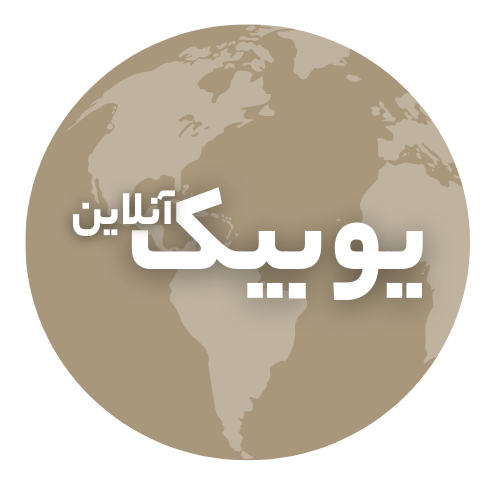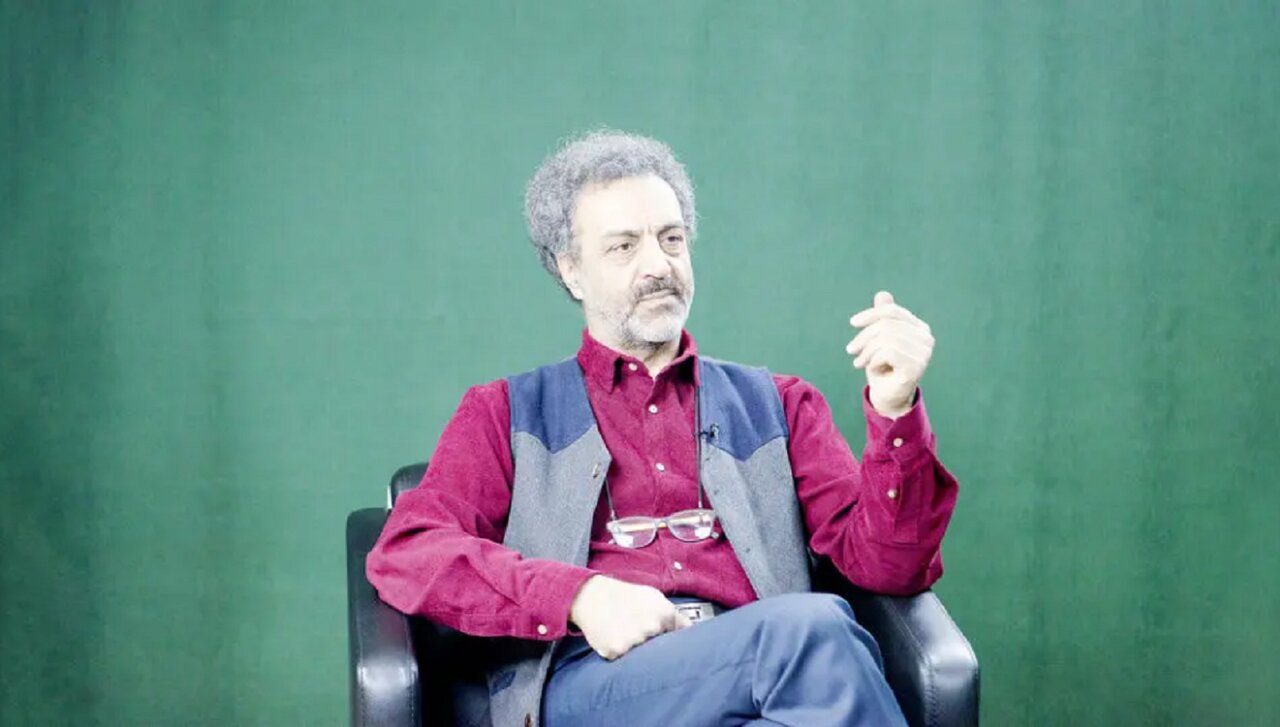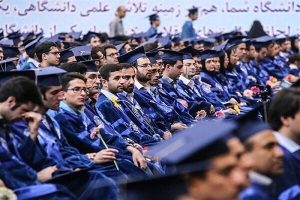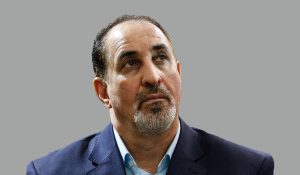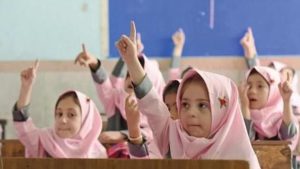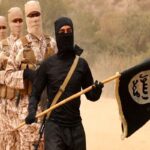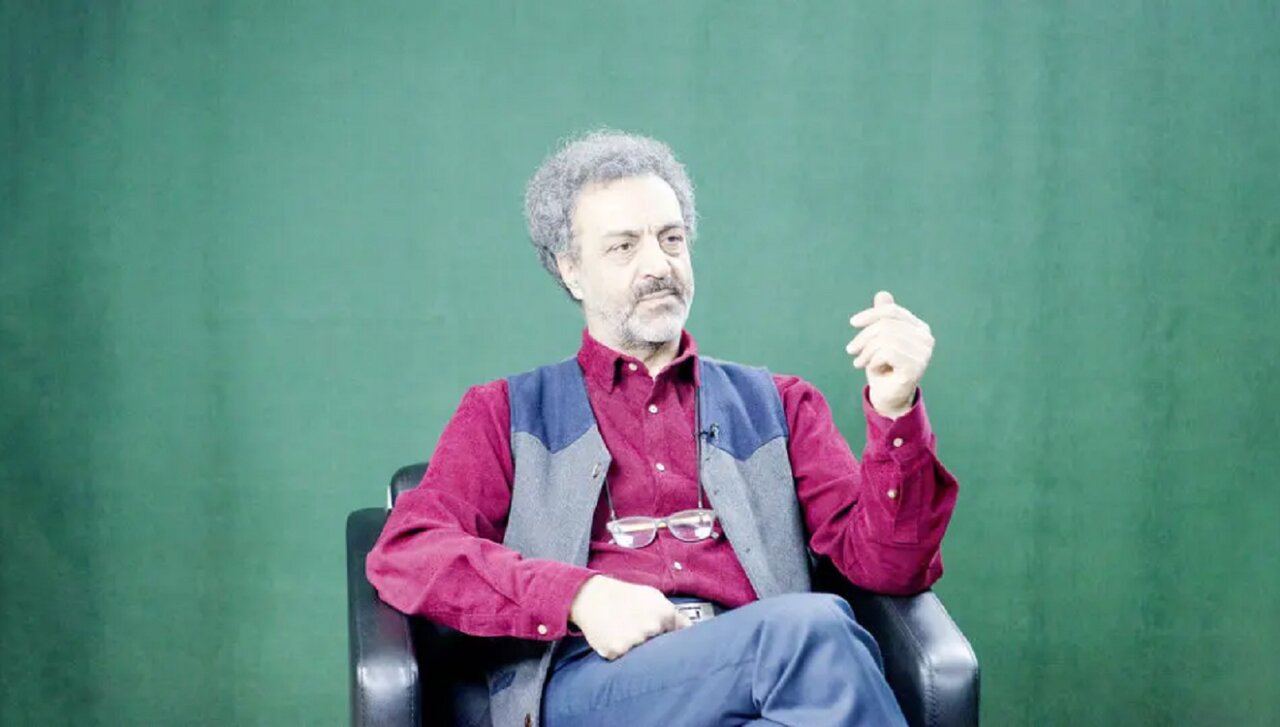
According to the news agency Online news“Language is the cornerstone of development. Mohsen Renani, an economist who has worked for many years on the basics of development, investment, human capital and symbolic capital, now, inspired by Dariush Ashuri’s idea about the language issue, believes that language is one of the most important issues in the field of development and says that if he wants To work on development for the rest of his life, he prefers to work on the two fields of language and childhood.”
This is a part of the introduction of Ahmed Gholami, a writer and journalist, to the text of an interview with Mohsen Renani in Shargh newspaper. From this point of view, during this interview, Renani also took a look at the issues of contemporary Iranian history, which we read below:
Until the first years after the revolution, I thought that our problem was political development, until the government is reformed and political development and democracy are not established, nothing will be solved. The constitutional revolution, the oil nationalization revolution and the Islamic revolution all sought political development, but nothing has changed. Both the behavior of political elites and officials and the behavior of people towards those political elites have not changed much. Neither they are open to criticism nor do people dare to criticize. So we have the experience of one hundred and ten years of political efforts for political openness. The society has also grown a lot, oil came, we have economic growth and prosperity, urban development and a university, but in terms of behavioral patterns, we are not very different from the late Qajar when the constitutional revolution took place. Our political officials still do not know how to talk, apologize and retreat. Everyone knows “we said”. This political tradition continues from Qajar until now, while we have one hundred and ten years of political experience.
What is the problem?
What is the problem? I bring this back to the house of education, the house of childhood and the house of language, the problem is there. The change of moods and behavioral patterns is rooted in the house of education and the house of language, and until these two issues are resolved, we will continue to follow the same path. If you can see that our situation is good to some extent, it is because of oil, otherwise we would be something between Afghanistan and Pakistan today. When oil came, it changed our world, but we have not changed yet. Where is this house that needs to be changed? Let me clarify it with an example. Today, we have between 220 and 240 registered parties, and about half of these parties are active, that is, they gather once a year and hold a congress. Among these, three or four parties have life and political life throughout the year; That is, they take a stand, make a statement, hold training sessions, but none of these parties have been able to engage a large audience with them. With a limited number of the central council in addition to a limited number of supporters and representatives in the provinces, they have not been able to penetrate at the national level. why Because our parties have no story. The story is those common wishes that have reached a common understanding and if we try, we can express them in the form of one, two, three in the ideological propositions of the party. The stories of our parties, whether before the revolution or now, are the stories of the government system. That is, those who are close to the government, their stories are the same as the government’s stories, and those who are far from the government could not produce stories. It is important that they can create a common story and win the hearts of Iranians with their story.
So we have two problems: one is the inability of party actors who have not learned the necessary ability to work together, patience, tolerance, tolerance in collective work and risk-taking at home and in the lap of their parents. Second, it is related to the language abilities to create a story, a large part of which is formed at home. Shahnameh was the story of Iran for a thousand years until the foreigners found Takht Jamshid for us and took out its blind history. We did not discover Takht Jamshid and the history of Kuresh, and foreigners discovered it a hundred and seventy or eighty years ago. The history before the Sassanids was made for us by foreigners. Before that, our history was the Shahnameh and our kings were the kings of the Shahnameh. Our enemies were the enemies of Shahnameh: Iran and Aniran. Therefore, the Shahnameh wrote the story of Iran a thousand years ago, and the entire nation of Iran believed it. The Iranian nation means all ethnic groups; Kurds, Lers, Turks and Baluchs also read the Shahnameh. Shahnameh became a common story for all of us. Still parts of the Shahnameh are our common story. The great service of Ferdowsi, who says, “I brought Persian to foreign countries”, is not that I revived Persian with the words of the Shahnameh, but that he made our history for a thousand years.
The story of the Iranian people’s democracy
The problem is why our party can’t make a story now. A part goes back to the house and a part to the language; Therefore, we don’t have democracy because we don’t have stable parties, and we don’t have stable parties because we don’t have powerful elites. We do not have powerful elites because these elites did not learn the necessary skills to create a common story in their childhood home and language home. So I say that democracy is formed in the home of childhood and in the home of language. In order to have democracy, we must create the story of democracy. What is the story of democracy for Iranian people? Shahkashi For the people of Iran, from Shah Abbas onwards, the story of democracy has been the story of assassination, and before that, it has its own story. But democracy does not come from the assassination of a king. Democracy comes from interacting with kings. Mohammad Ali Shah begged, I will negotiate with you and accept your terms, they said no, now that we got it, it’s over and they hit. Whereas if they had made a rigid agreement with Mohammad Ali Shah and put in a control and monitoring mechanism, we would have gone towards democracy with a natural constitutional mechanism. Ahmad Shah was a modern person with modern thoughts and education who studied in Europe, knew French and knew the modern world, he was a moral person, but we said you have to go! We repeated the same story during the time of Mohammad Reza Shah. After all, Mohammad Reza Shah was very different from his father in terms of his dictatorial personality. The night before the Allies entered Iran, no one dared to tell Reza Shah that the Allies were at the borders. At half past two in the morning, when the allies arrived, the Prime Minister went with the British and Russian ambassadors, they woke up Reza Shah and said that the foreign army had come and he had only surrendered. Mohammad Reza Shah was different, but we said that now we have the power and only the Shah should go: “Until the Shah is shrouded, this country does not become a country”, and now we are looking for the assassination of the Shah again. Therefore, in the eyes of the Iranian people, democracy means assassination. Real democracy starts at home and it is the story that creates democracy and can dialogue with its enemy. If we can’t talk to America, we haven’t learned to talk to America at home, we haven’t learned to talk to the language or mother’s house, and they don’t allow us to talk.
“Iranian compatibility” that Engineer Bazargan says is different from tolerance
There is no doubt that huge changes are happening in Iranian society for the first time. That is, 1400 separates Iran from before and after. Much of the change we expect will happen very quickly. Our analysis focuses on the historical background of the Iranian people up to this moment, that is, the “Iranian compatibility” that Engineer Bazargan says has a different type of tolerance. It means that Iranian people are compatible. Adaptation that means dictatorship. A dictator is someone who oppresses when he has power and strains when he doesn’t have power. Therefore, we should not accept those historical silences as compatibility. Accommodating means that I stop and accept until I get a chance. This is how the people of Iran kept silent, as soon as they gained power, they revolted and their elites killed the king. Distinguish this adaptation from the modern adaptation to the concept of tolerance. The modern world requires tolerance and tolerance. So, I say that until 1400, Iran was a type of traditional adaptation, but I do not deny that we are entering modern adaptation. In March 1400, I wrote an article called “Say hello to the wounds of Iran” in which I predicted that the future developments of Iran will be created by women, which coincidentally six months after that, the Mahsa movement started. Iran shows a new face from the beginning of the 15th century. I believe that for the first time since the constitutional movement, an authentic civil movement that has the power to create language and stories is being created.
Our people did not want democracy at the time of the constitution
The constitutional revolutionaries created a story and said that the constitution, parliament, and democracy are good. Because each of the revolutionaries was a khan and the head of a tribe and had weapons, the people obeyed. They also had force and imposed on the government. But our people still did not want democracy. The next story was created by Reza Shah and he carried out modernization and modernization by force of arms and modernized Iran or created the grounds for its modernization with the White Revolution, the Knowledge Corps, and the Knowledge Corps. Mossadegh created the story of the oil nationalization movement and society played in Mossadegh’s story. The story of the Islamic revolution was created by Ayatollah Khomeini and Dr. Shariati. His story was written by Ayatollah Khomeini in 1942 in the book “Valayat Faqih”. In the 1950s, Dr. Shariati also required a newer version of Velayat Faqih with his books. It became a two-volume book, the writings of the Ayatollah, the writings of the doctor, which became the story of the Islamic Revolution. The left ones were added later.
In the 1976 elections, the Iranian community acted in Khatami’s story, which was a new interpretation of Ayatollah’s story. In 88, Engineer Mousavi wanted to return to the Imam’s speech. Again, the Iranian society played in the story created by the political elite or the government. Until we reached Ahmadinejad, who wanted to perform a new interpretation of Ayatollah’s story. Rouhani was the continuation of the same path. Mr. Raisi also wanted to return to the beginning of the revolution. Therefore, our society did not create a story from the constitutional revolution until 1400 and played in the story created by the government elites or elites outside the government, believed their story. The reason why I participated in the 14th election and encouraged people to participate was so that the Mahsa movement would have a chance to create its story before entering the phase of violence. When a movement creates a story, it plays in its own story and does not need violence. A movement enters into violence that has no story…
The constitutional thought was not born from the social background and collective will
Regarding the constitutional movement, there is no doubt that Malkam Khan and Akhundzadeh provided the theoretical foundations of the movement. There is no problem to say that it was imported, when the thinking is right, it doesn’t matter where it comes from. But the point is that at that time the literacy rate in Iran was 1% or less and the cultural and intellectual elites did not have the possibility to communicate with the society. And they left their mark through the political elites who were the khans and heads of clans and elders of the regions, so the intellectual elites attracted the elders and scholars and influenced their thinking and they came behind the constitutional revolution as the representatives of their society. I’m not saying that he didn’t have a thought, but this thought was not born from the social background and collective will. This thought – good or bad – was instilled through the elites, so it was not a social transformation, it was an elite transformation and that is why Reza Shah can easily come. If it was a social transformation, Reza Shah could not come, or when he came, he could not change towards a dictatorship.
The changes in Europe started after the society became literate
… There is no doubt that the oil nationalization movement has a discourse and beyond the discourse it has a story that was created by the elites around Mossadegh and the Tudeh party and the people played in their story. I’m not saying that they didn’t have discourses or stories, the important thing is that the elites created the story and people believed and played and they may have lost their belief. This is different from a story that comes out of the heart of society and is played by elites. The Mahsa movement creates its own story and the elites are forced to act in that story. This is the evolution that happened in the West. In the West, society created stories and elites played in them. In 1500, the literacy rate in the West was 1%. Since the language and script were born, one percent of the society needed to be literate because there was no need for literacy. If a law or a royal decree was to be written, only one scribe was needed. The changes in Europe started after the society became literate. In 1750, that is, 250 years later, (that is, 250 years before us) in some European countries, the literacy rate was 90%, but we have not yet reached 90%. I want to say that a genuine transformation is a transformation that rises from the society and the elites play in it. From this point of view, I think that after 1400, Iran’s society is changing qualitatively; That is, it changes from below. Before that, the taste of Iranian food and politics was given to the elites, but now the Iranian society is brewing and producing its own taste. Therefore, if there was a story in the Islamic revolution, the constitutional revolution, and the oil movement, the story was spilled from above. Mahsa movement has this difference. Therefore, I believe that Iranian society is undergoing qualitative changes, but I still cannot understand it. We have to take a step back to see what comes out of this development.
The meaning of language house is the lowest intellectual and cultural part of the society
When we talk about the house of language, we mean the lowest intellectual and cultural part of the society. Narratives or stories are built on the house of language, such as Ferdowsi’s story, Shahnameh, Molavi, Modern Iran, Islamic Revolution. On these stories, discourses are built, which are higher and simpler, and their durability is short. The durability of discourses is as long as the characters who create that discourse. Therefore, Khatami brings the discourse of religious democracy, Trump brings up the discourse of Great America. The use of these discourses is short-term and they have no depth and are mostly used for political and periodical purposes…
259
منبع: www.khabaronline.ir
